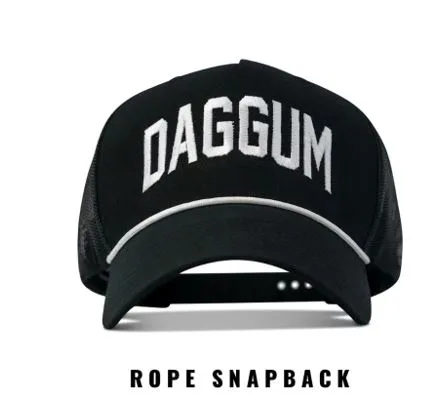Industrial Drum Containers: A Complete Guide to Types, Manufacturing, and Global Applications
Industrial drums are the backbone of logistics and storage for hazardous and non-hazardous materials worldwide. These containers ensure safe transport and storage across industries like chemicals, food processing, pharmaceuticals, and petroleum. The Cary Company, a leader in industrial packaging since 1895, offers a wide range of drum solutions designed to meet stringent industry standards.
This guide explores the different types of industrial drums, their manufacturing processes, key applications, safety regulations, and emerging trends. With the global drum market projected to grow at a CAGR of 4.5% through 2030, understanding these containers is essential for businesses prioritizing efficiency, compliance, and sustainability.
Introduction to Industrial Drums
Industrial drums are cylindrical containers designed for the safe storage and transport of liquids, powders, and granular materials. They come in various materials—steel, plastic, and fiber—each suited for specific applications. The Cary Company provides high-quality drums that meet UN/DOT, FDA, and EPA standards, ensuring compliance across industries.
The demand for industrial drums continues to rise due to increasing chemical production, stricter environmental regulations, and the need for reusable packaging solutions. Steel drums dominate the market for hazardous materials, while plastic and fiber drums are preferred for lightweight, corrosion-resistant, and eco-friendly applications.
Key factors driving drum innovation include:
The industrial drum sector is undergoing rapid transformation, driven by three critical market forces that are reshaping container design and functionality:
1. Safety Advancements
Modern drum engineering prioritizes fail-safe containment through:
- Triple-seam reinforcement in steel drums that withstand 3G vibration during transport
- Pressure-relief bungs that automatically regulate internal pressures during temperature fluctuations
- Spill-containment chimes that capture drips during pouring operations
Companies like The Cary Company now offer UN-certified “leak-proof guarantee” drums featuring patented gasket systems that maintain integrity even after 10-foot drop tests. Recent innovations include conductive plastic drums that prevent static discharge when handling flammable liquids – a crucial development for chemical and fuel transporters.
2. Sustainability Initiatives
The circular economy model has driven remarkable progress in:
- Closed-loop reconditioning programs where steel drums undergo up to 7 lifecycles through industrial washing, re-lining, and re-certification
- Bio-based HDPE resins containing 30% post-consumer recycled content without compromising chemical resistance
- Lightweighting technologies that reduce steel drum weight by 15% while maintaining UN 1A1/X performance ratings
The Cary Company’s EcoDrum program has diverted over 2 million pounds of steel from landfills through drum refurbishment since 2020.
3. Smart Technology Integration
IoT-enabled “smart drums” now provide:
NFC-tagged bungs that store full shipment histories accessible via smartphone
Bluetooth pressure sensors alerting to dangerous vapor buildup in real-time
GPS-tracked fleet management reducing loss rates by 22% in field trials
These innovations align with Industry 4.0 logistics, where The Cary Company’s SmartLogix tracking system helps Fortune 500 clients achieve 99.5% shipment visibility.
Regulatory pressures (particularly EPA and EU REACH directives) and rising steel costs (up 38% since 2021) continue accelerating these innovations, with 73% of drum manufacturers now investing in R&D for sustainable smart containers according to PMMI’s 2023 Packaging Outlook Report.
Types of Industrial Drums
1. Steel Drums: The Industry Workhorse
Steel drums remain the gold standard for industrial storage and transportation due to their unmatched durability, structural integrity, and ability to withstand extreme conditions. The Cary Company, with over a century of expertise, supplies both carbon steel and stainless steel drums, engineered to meet the rigorous demands of industries such as chemicals, petroleum, pharmaceuticals, and food processing.
Carbon Steel Drums
Carbon steel drums are made from durable 18-20 gauge cold-rolled steel, offering a high strength-to-weight ratio, making them both sturdy and easy to handle. These drums are widely used in industries requiring secure storage and transport of liquids and semi-solids.
Key Applications:
Petroleum Products: Ideal for lubricants, solvents, and motor oils due to their leak-proof construction.
Paints & Coatings: Often lined with phenolic coatings to prevent rust and contamination, ensuring product purity.
Non-Corrosive Chemicals: Additional protective linings like epoxy or zinc coatings enhance chemical resistance.
Advantages:
Cost-effective compared to stainless steel.
Highly durable, withstanding rough handling.
Customizable linings for different contents.
Limitations:
Not suitable for highly corrosive chemicals unless specially lined.
Requires proper sealing to prevent moisture ingress.
Carbon steel drums are a reliable, economical choice for industries needing robust, reusable containers for non-reactive substances. Their versatility makes them essential in chemical, automotive, and manufacturing sectors.
Stainless Steel Drums:
Stainless steel drums are highly durable containers widely used in industries like food, pharmaceuticals, and corrosive chemical storage due to their excellent rust-resistant properties. Their non-reactive nature ensures product purity, often eliminating the need for additional linings. This makes them ideal for sensitive applications where contamination must be avoided.
These drums are UN-certified, meeting strict safety standards for transporting hazardous materials. Their robust construction allows them to withstand harsh conditions, ensuring safe storage and shipment of volatile or corrosive substances. Unlike plastic or fiber drums, stainless steel drums can be reconditioned multiple times—cleaned, repaired, and reused—reducing long-term costs and environmental impact.
Their versatility extends to high-temperature and high-pressure applications, making them suitable for industrial processes. Additionally, they resist chemical degradation, ensuring longevity even with aggressive substances. While initially more expensive than other drum types, their reusability and durability make them a cost-effective choice over time.
In summary, stainless steel drums offer unmatched corrosion resistance, compliance with safety regulations, and sustainable reusability, making them a preferred choice for industries requiring reliable and long-lasting storage solutions. Their ability to maintain integrity under extreme conditions ensures safe handling of sensitive and hazardous materials.
2. Plastic Drums: The Versatile Alternative
Plastic drums, made from HDPE or polypropylene, provide excellent chemical resistance and are 30–40% lighter than steel. The Cary Company’s plastic drum selection includes:
- HDPE Drums: FDA-compliant for food, pharmaceuticals, and chemicals. Their translucent design allows for easy content inspection.
- Polypropylene Drums: Withstand high temperatures (up to 200°F), making them ideal for hot-fill processes and aggressive chemicals.
These drums are non-reactive, corrosion-proof, and ideal for industries requiring lightweight, durable storage.
3. Fiber/Composite Drums: The Eco-Friendly Option
Fiber drums are made from multi-layered fiberboard, foil, and plastic, offering a sustainable solution for dry goods. The Cary Company supplies fiber drums for:
- Pharmaceuticals & Nutraceuticals (powders, granules)
- Food Ingredients (non-hazardous, dry products)
- Waste Management (recyclable, incinerator-safe disposal)
Benefits include stackability, moisture resistance, and reduced shipping costs due to their lightweight design.
Drum Manufacturing Process
Steel Drum Production
The Cary Company sources steel drums from manufacturers adhering to strict quality control processes:
- Material Cutting & Shaping: Steel coils are precision-cut and rolled into cylinders.
- Welding & Seaming: Electric Resistance Welding (ERW) ensures leak-proof seams.
- Coating & Lining: Interior linings (phenolic, epoxy) are applied for chemical resistance.
- Testing: Hydrostatic pressure, drop, and stacking tests verify durability.
Plastic Drum Manufacturing
Plastic drums are manufactured through blow molding, a process that begins with parison extrusion, where molten plastic (typically HDPE or PP) is formed into a hollow tube. This tube is then clamped into a mold, and compressed air inflates it, pressing the plastic against the mold walls to take the shape of a drum. After cooling, the mold opens, releasing the formed drum. The final step involves finishing, where components like lids, bungs (fill openings), and handles are added, and excess plastic is trimmed. This method ensures durable, lightweight, and leak-proof drums, making them ideal for storing and transporting chemicals, food, and industrial liquids. Blow molding allows for efficient mass production while maintaining consistent quality and strength.
Global Applications of Industrial Drums
1. Chemical Industry
Petrochemicals: Steel drums store solvents, lubricants, and additives.
Specialty Chemicals: HDPE drums handle acids and corrosive materials.
Agricultural Chemicals: UN-rated drums are required for pesticides and fertilizers.
2. Food & Beverage Industry
Edible Oils & Syrups: Stainless steel or epoxy-lined drums maintain purity.
Flavorings & Additives: FDA-compliant HDPE drums ensure food safety.
3. Waste Management
Hazardous Waste: Salvage drums safely contain leaks.
Medical Waste: Puncture-resistant plastic drums ensure safe disposal.
Safety Standards and Compliance
The Cary Company ensures all drums meet:
- UN/DOT Certification (for hazardous material transport)
- FDA 21 CFR (food-grade compliance)
- EPA/OSHA Regulations (workplace and environmental safety)
Proper labeling, testing, and documentation are critical for compliance.
Best Practices for Drum Handling, Storage, and Sustainability
Handling: Use drum lifters and PPE to prevent accidents.
Storage: Keep in ventilated areas, away from heat sources.
Reconditioning: Steel drums can be reused 3–5 times after refurbishment.
Recycling: The Cary Company offers drum recycling programs to reduce waste.
Future Trends in Drum Technology
Smart Drums: IoT sensors track location, temperature, and fill levels.
Advanced Materials: Self-healing coatings and nanocomposites enhance durability.
Automation: Robotic handling improves efficiency in drum logistics.
Choosing the Right Drum Supplier
The Cary Company – Nationwide Locations & Warehouses
Serving Businesses Across the U.S. with Convenient Regional Hubs
At The Cary Company, we make it easy to access the packaging, shipping, and industrial supplies you need—no matter where you’re located. With multiple warehouses and offices strategically positioned across the U.S., we offer fast delivery, local pickup, and personalized service tailored to your region.
Explore our locations below:
Corporate Headquarters
📍 1195 W. Fullerton Ave., Addison, IL 60101
📞 Phone: (630) 629-6600
📧 Emails: customerservice@thecarycompany.com | sales@thecarycompany.com
🕒 Hours: Mon–Fri, 7:30 AM – 5:30 PM (CST)
Our Warehouses & Regional Offices Addison, Illinois
📍 1195 W. Fullerton Ave., Addison, IL 60101
📞 Phone: (630) 629-6600
🕒 Will Call Hours: Mon–Fri, 8:00 AM – 5:00 PM (CST)
🚛 Receiving Hours: 7:00 AM – 12:00 PM (CST)
Brownsburg, Indiana
📍 4334 N County Rd 1000 E, Ste 120, Brownsburg, IN 46112
📞 Phone: (812) 232-3413
🕒 Hours: Mon–Fri, 7:30 AM – 4:00 PM (EST)
Charlotte, North Carolina
📍 12810 Virkler Dr., Ste 106, Charlotte, NC 28273
📞 Phone: (630) 629-6600
🕒 Hours: Mon–Fri, 8:30 AM – 3:30 PM (EST)
[Map & Directions]
Glendale Heights, Illinois
📍 1640 Fullerton Ct., Ste 300, Glendale Heights, IL 60139
📞 Phone: (630) 629-6600
🕒 Will Call Hours: Mon–Fri, 8:00 AM – 4:30 PM (CST)
Jurupa Valley, California (Containers Unlimited)
📍 10220 San Sevaine Way, Jurupa Valley, CA 91752
📞 Phone: (951) 682-1400
📧 Email: cu@thecarycompany.com
🕒 Hours: Mon–Fri, 6:30 AM – 2:00 PM (PST)
Livermore, California (Containers Unlimited)
📍 6150 Las Positas Rd, Livermore, CA 94551
📞 Phone: (510) 887-9277
🕒 Will Call Hours: Mon–Fri, 7:00 AM – 3:30 PM (PST)
🚛 Receiving Hours: 6:00 AM – 11:30 AM (PST)
Pittsburgh, Pennsylvania (Three Rivers Packaging)
📍 20 39th St., Pittsburgh, PA 15201
📞 Phone: (412) 778-3900
📧 Email: 3rivers@thecarycompany.com
🕒 Hours: Mon–Fri, 8:00 AM – 5:00 PM (EST)
Salt Lake City, Utah (Quality Container)
📍 5231 Harold Gatty Dr., Salt Lake City, UT 84116
📞 Phone: (801) 977-0770
📧 Email: sales@qcontainer.com
🕒 Hours: Mon–Fri, 8:00 AM – 4:30 PM (MST)
Grand Prairie, Texas
📍 949 West Oakdale, Grand Prairie, TX 75050
📞 Phone: (630) 629-6600
🕒 Hours: Mon–Fri, 8:00 AM – 5:00 PM (CT)
Why Choose The Cary Company?
✅ Local Inventory: Quick pickup or delivery from a warehouse near you.
✅ Expert Support: Dedicated teams at every location.
✅ Nationwide Reach: From the Midwest to the West Coast and beyond.
Need help? Contact us today—we’re here to serve you!
📞 Call: (630) 629-6600
📧 Email: sales@thecarycompany.com




